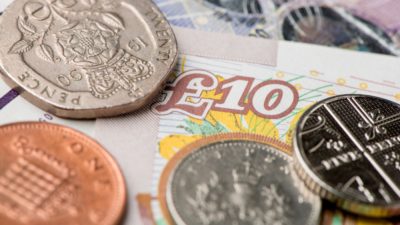BT Group (LSE: BT.A) shares have not had a great run in 2017, losing almost 30% of their value. Starting the year at around 370p, the shares briefly rose to the 400p mark, before plummeting to 300p in late January. Since then, they have continued to trend lower and today can be picked up for just 270p.
At that price, value appears to be on offer from a contrarian investment perspective. With City analysts forecasting earnings of 27.5p for FY2018, BT trades on a forward P/E of just 9.9. Furthermore, an estimated dividend payout of 15.7p results in a prospective dividend yield of 5.8% right now. At a time when interest rates are low, and inflation is rising, that kind of yield definitely sounds appealing.
However, if you’re thinking of buying BT shares for the big dividend right now, there are a couple of things you should know.
Huge pension deficit
The main issue that concerns me (and clearly a lot of other investors) is BT’s sizeable pension deficit. At the end of FY2017, the pension deficit was over £9bn. Some analysts believe the deficit could be as high as £14bn right now. That’s a staggeringly high liability. To put that figure in perspective, total equity on BT’s balance sheet was £8.3bn at the end of FY2017. So what does this actually mean for investors?
Pressure on the dividend
The problem with BT’s large pension deficit, is that sooner or later, the telecommunications group is going to have to direct a large pile of cash towards the pension, in order to reduce the deficit. Indeed, ratings agency Moody’s recently warned that it may need to stump up £2bn in cash for the pension over the next two years.
Given that total dividends last year amounted to £1.4bn, this obviously has implications for the dividend. Less cash available means potentially less cash for dividend payments.
This is reflected not only in the most recent dividend payment, but also analysts’ dividend growth forecasts for this year and next. After lifting its payout by an average of 12% over the last three years, BT recently held its interim dividend flat at 4.85p. Analysts now expect dividend growth of just 2.2% this year and 4.3% next.
Large debt pile
Adding to the bear case for BT Group, is the company’s giant debt pile. On top of the gigantic pension deficit, it also had total long-term debt of £10bn on its balance sheet last year. High levels of debt mean large amounts of cash need to be directed towards interest payments. This is something worth keeping in mind as a dividend investor, as with interest rates rising, the debt is likely to become more expensive to service. Again, this could potentially reduce the cash available for dividend payments.
So while BT’s valuation and dividend yield appear to be attractive, the current valuation suggests to me that the market has doubts about the sustainability of the company’s dividend. A cut in the next few years is not out of the question. With plenty of other high dividend stocks to choose from in the FTSE 100 at present, I’m happy to pass on BT’s high yield for now.






